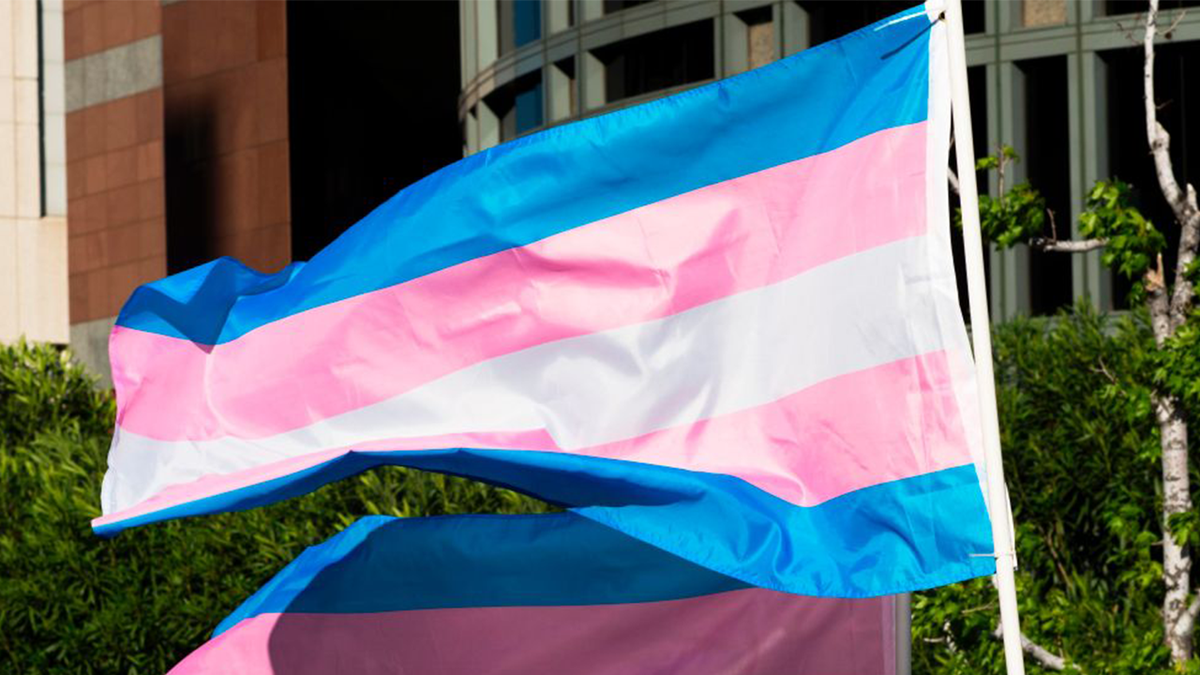'Radical feminists' agree with women's sports bill that passed House
Kara Dansky and Lierre Keith discuss why they, self-described 'radical feminists,' support Republicans' bill that would ban transgender women from competing against females.
Fifteen years ago, I was living in a queer commune and calling myself "Sebastian." I spent hours on message boards angrily defending the queer theory belief that "gender" is a "performance."
Funny how things change. On Wednesday, my book Feminism Against Progress was due to launch at a venue in New York City. But last week, the venue canceled the event booking at short notice, following anonymous social media pressure.
My thoughtcrime? Saying in public that humans can’t change sex, and that performing gender surgery on kids is "butchery."
No doubt the "me" of fifteen years ago—Sebastian—would have been cheering on this cancelation. So how did I end up doing such a 180?
TRANS TIKTOKER'S EERIE VIRAL COMMENT RAISES CONCERN ON SOCIAL MEDIA
The story begins at Oxford University, in Great Britain, in the late 1990s. There, as an undergrad majoring in English literature, I met "woke" theories for the first time—and jumped right in. I believed it all, and I set about realizing its ideas in my own life.
Within the worldview I’d adopted, every form of commitment, stability, and structure felt oppressive. I wanted a world completely without power and authority. I tried to create that world and live authentically in it.
I thought feminism meant being independent, constrained only by what I wanted to do. I should be free of expectations, limits, or obligations connected to being a woman—even the limits of my physical body. I should be free to have sex without consequences, like a man. To dress as I pleased. To do any job I liked. To be treated the same as a man, in all situations.
Above all I should not be expected to limit myself to being a mom. The feminists of the "having it all" era taught me that doing so would be evidence of my oppression—or maybe just my lack of ambition. To be "just a mom" was a kind of failure.
After my daughter was born, though, I realized it wasn’t that simple. First, I learned that "independence" and "freedom" don’t really compute when you’re pregnant. Suddenly what you eat or drink or do affects your baby as well as you. There’s no more pretending you can do what you like, whenever you like. When your baby is crying for milk at 3:00 a.m. you can’t just say "No, I don’t want to get up." Talking about "independence" in that context makes no sense.
This realization drove me to rethink everything I’d believed about feminism. Why was a movement supposedly for women selling me on a kind of freedom that’s worse than useless for moms? Are moms not women? Delving into the history of the women’s movement, I came to see that it used to make plenty of space for moms.
Feminism began as women’s response to the way family life changed after the Industrial Revolution, as work left the home. In its early days the movement included women who defended care, motherhood, and the reality of our sexed bodies. It also included women who sought freedom on the same terms as men. These two camps often disagreed, but between them they sought to defend women’s interests as the world modernized.
But in the mid-twentieth century, freedom kicked care off the field. It happened when abortion was legalized, in the name of the feminism of freedom. Figures such as jurist Ruth Bader Ginsburg framed abortion as a crucial precondition for women to participate in society.
And ever since, this has been the orthodox feminist view. That freedom is everything: that it must be defended at all costs, even if that cost includes killing an unborn baby whose life depends on a woman’s body. No wonder this "feminism" has a mom-shaped blind spot: pretty much by definition, being a mom means limiting your freedom in the name of love.
And this feminism of freedom at any cost has, in fact, many costs. It’s opened the door to a sexual free-for-all in the name of freedom that leaves young women lonely, injured, and unsatisfied. It’s legitimized the commercial exploitation of women’s bodies in pornography, prostitution, and commercial surrogacy.
And it’s the driving force behind gender ideology. For if freedom is everything, and we’re not free unless we can escape every limit of our sexed bodies, why should this only apply to women? Why not grant everyone the freedom to be whichever sex they like?
But the brutal truth is that we can’t have that freedom, any more than we can change the basic biological drives that underpin desire, reproduction, and motherhood. Every one of us is a union of mind and body. And every one of our bodies is sexed—male or female—from conception onward. Every cell in our body has a sex. And our sex still constrains who we can be, and even what we want, in ways that have nothing to do with culture, or power, or oppression.
CLICK HERE TO GET THE OPINION NEWSLETTER

A transgender flag unfurled on a pole. (Getty)
CLICK HERE TO GET THE FOX NEWS APP
I was canceled last week in New York City for speaking the truth about this. I get called all kinds of names by the fake feminists of "freedom at any price." But when I say out loud that humans can’t change sex, and that kids have needs, or that moms and dads aren’t interchangeable, this is not born of ignorance or bigotry. It’s the fruit of experience.
I learned the hard way that more tech and more freedom doesn’t mean more happiness. What brought me peace in the end was not "emancipation" but beneficial constraints. A committed partnership, a stable home, a child—and a willingness to accept that I’m not just "human" but also female.
Accepting these things limited what I could do. But within those limits, joy and love and meaning are infinitely more able to flourish. If there’s one thing I hope for with Feminism Against Progress, it’s that a few young women may read it and figure this out more quickly than I did. And that they’ll join me in taking the women’s movement back from the empty, toxic illusions of "freedom at any price."












































